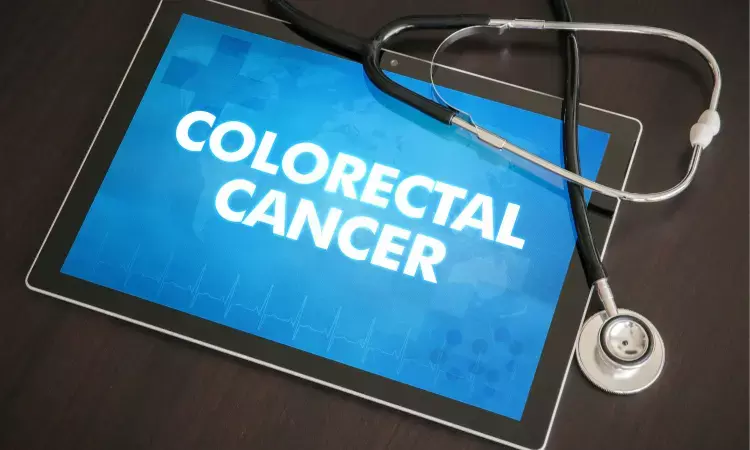- Home
- Medical news & Guidelines
- Anesthesiology
- Cardiology and CTVS
- Critical Care
- Dentistry
- Dermatology
- Diabetes and Endocrinology
- ENT
- Gastroenterology
- Medicine
- Nephrology
- Neurology
- Obstretics-Gynaecology
- Oncology
- Ophthalmology
- Orthopaedics
- Pediatrics-Neonatology
- Psychiatry
- Pulmonology
- Radiology
- Surgery
- Urology
- Laboratory Medicine
- Diet
- Nursing
- Paramedical
- Physiotherapy
- Health news
- Fact Check
- Bone Health Fact Check
- Brain Health Fact Check
- Cancer Related Fact Check
- Child Care Fact Check
- Dental and oral health fact check
- Diabetes and metabolic health fact check
- Diet and Nutrition Fact Check
- Eye and ENT Care Fact Check
- Fitness fact check
- Gut health fact check
- Heart health fact check
- Kidney health fact check
- Medical education fact check
- Men's health fact check
- Respiratory fact check
- Skin and hair care fact check
- Vaccine and Immunization fact check
- Women's health fact check
- AYUSH
- State News
- Andaman and Nicobar Islands
- Andhra Pradesh
- Arunachal Pradesh
- Assam
- Bihar
- Chandigarh
- Chattisgarh
- Dadra and Nagar Haveli
- Daman and Diu
- Delhi
- Goa
- Gujarat
- Haryana
- Himachal Pradesh
- Jammu & Kashmir
- Jharkhand
- Karnataka
- Kerala
- Ladakh
- Lakshadweep
- Madhya Pradesh
- Maharashtra
- Manipur
- Meghalaya
- Mizoram
- Nagaland
- Odisha
- Puducherry
- Punjab
- Rajasthan
- Sikkim
- Tamil Nadu
- Telangana
- Tripura
- Uttar Pradesh
- Uttrakhand
- West Bengal
- Medical Education
- Industry
Colorectal cancer linked with increased risk of cardiovascular mortality, reveals research

People diagnosed with colorectal cancer are significantly more likely to die of cardiovascular causes than the general population, especially in the first two years after their cancer diagnosis and in people younger than 50, according to a study being presented at the American College of Cardiology’s Annual Scientific Session (ACC.25).
With colorectal cancer on the rise in the United States, the study is the first to track rates of cardiovascular mortality and assess how risk changes over time. While the reasons for the linkage are not yet known, researchers say the findings point to a need for increased attention to heart health during cancer treatment, particularly among people who are Black, male or younger than 50 years old at the time of their colorectal cancer diagnosis
“Based on our findings, the two-year period after a colorectal cancer diagnosis is a critical period when patients need aggressive care to improve cardiovascular outcomes,” said Ahsan Ayaz, MD, an internal medicine resident at Montefiore St. Luke's Cornwall Hospital in Newburgh, New York, and a member of the research team. “For example, there should be an aggressive approach to control cardiovascular risk factors and comorbidities like diabetes and hypertension. There is also a need for coordination between oncology teams and primary care teams, because most of those risk factors are managed by primary care providers.”
Heart disease is the leading cause of death worldwide and many studies have shown that people with cancer see an increased risk of cardiovascular problems. A 2022 JACC study found that cancer survivors had a 37% increased risk of cardiovascular disease. However, the relationship between cardiovascular mortality and colorectal cancer specifically has not been well studied.
Researchers used data from the National Cancer Institute’s Surveillance, Epidemiology and End Results (SEER) database to analyze outcomes among more than 630,000 U.S. adults diagnosed with colorectal cancer between 2000 and 2021. The study defined cardiovascular mortality as any deaths attributed to heart diseases, hypertension, strokes and other cerebrovascular diseases, a buildup of plaque in the arteries (atherosclerosis) or a tear or aneurysm in the aorta.
The results showed that people with colorectal cancer were overall 16% more likely to die of cardiovascular causes than people without colorectal cancer. The risk was highest in the first two years after a colorectal cancer diagnosis, with patients facing a 45% increased risk during this period. The elevated risk was especially pronounced among people younger than 50 years of age, who were 2.4 times more likely to die of cardiovascular causes than people in the same age group who did not have colorectal cancer.
Black patients with colorectal cancer faced a 74% increased risk compared with the general population, while males faced a 55% increased risk. Ayaz said that the disparities observed in the study could stem from multiple factors, such as differences in socioeconomic status, geographic location or access to care, and warrant further study and attention.
The heightened risk of cardiovascular death could stem from side effects of cancer treatment, from the cancer itself and the inflammatory processes it causes, or from some other cause or combination of causes, researchers said.
“For therapies that are newer, there is not a lot of data on the side effects and toxicities, but evidence is emerging that they cause cardiovascular toxicity,” Ayaz said. “It is important to identify these problems promptly and take steps to mitigate them.”
The researchers next plan to conduct a systematic review and meta-analysis to assess trends in cardiovascular mortality among patients receiving different cancer therapies. Based on the disparities noted in the study, Ayaz said there is a need to further study the potential role of factors such as socioeconomic status, insurance status and health care access in clinical trials for colorectal cancer.
Reference:
Colorectal cancer linked with increased risk of cardiovascular mortality, American College of Cardiology, Meeting: American College of Cardiology's Annual Scientific Session.
Dr Kamal Kant Kohli-MBBS, DTCD- a chest specialist with more than 30 years of practice and a flair for writing clinical articles, Dr Kamal Kant Kohli joined Medical Dialogues as a Chief Editor of Medical News. Besides writing articles, as an editor, he proofreads and verifies all the medical content published on Medical Dialogues including those coming from journals, studies,medical conferences,guidelines etc. Email: drkohli@medicaldialogues.in. Contact no. 011-43720751


